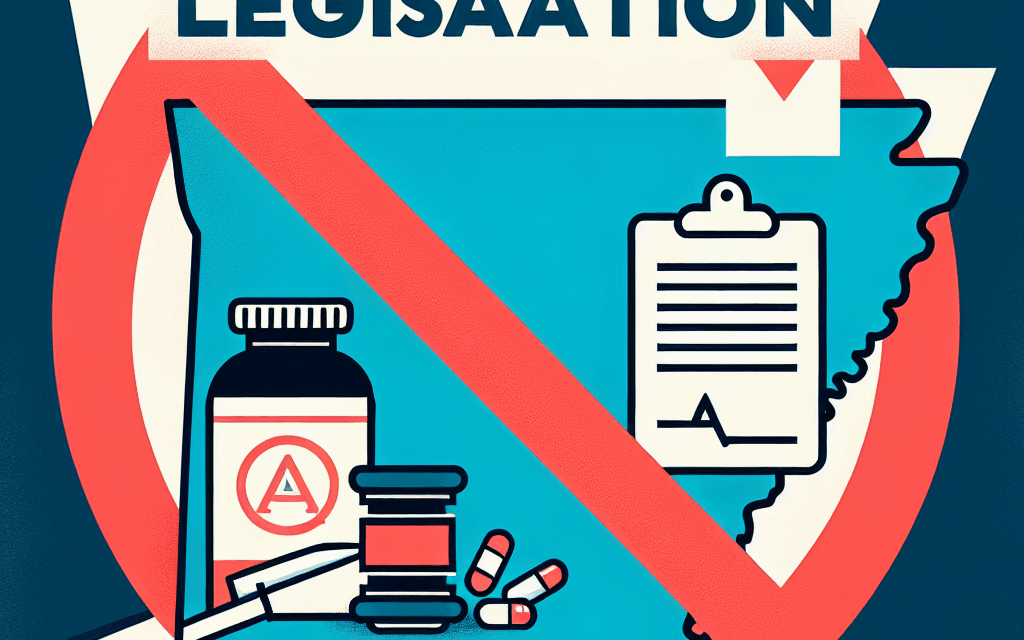Arkansas Enacts Legislation Prohibiting PBM Ownership of Pharmacies
In a significant move to reshape the pharmaceutical landscape, Arkansas has enacted legislation that prohibits Pharmacy Benefit Managers (PBMs) from owning pharmacies. This decision has sparked discussions about the implications for healthcare, pharmacy operations, and patient care. This article delves into the details of this legislation, its motivations, potential impacts, and the broader context of PBM practices in the United States.
Understanding Pharmacy Benefit Managers (PBMs)
Pharmacy Benefit Managers (PBMs) play a crucial role in the healthcare system, acting as intermediaries between insurers, pharmacies, and drug manufacturers. Their primary function is to manage prescription drug benefits on behalf of health insurers, aiming to control costs and improve access to medications. However, their practices have come under scrutiny in recent years.
- Role of PBMs: PBMs negotiate drug prices, create formularies, and manage pharmacy networks. They aim to reduce costs for insurers and patients by leveraging their purchasing power.
- Revenue Generation: PBMs generate revenue through various means, including rebates from drug manufacturers, administrative fees, and spread pricing, where they charge insurers more than they reimburse pharmacies.
- Market Influence: The consolidation of PBMs has led to significant market power, raising concerns about their influence over drug pricing and availability.
- Patient Impact: Patients often face higher out-of-pocket costs and limited access to medications due to the decisions made by PBMs regarding formularies and pharmacy networks.
- Regulatory Scrutiny: As the role of PBMs has expanded, so has the scrutiny from regulators and lawmakers, leading to calls for greater transparency and accountability.
Despite their intended purpose of reducing costs, many stakeholders argue that PBMs contribute to rising drug prices and create barriers to patient access. This has led to a growing movement advocating for legislative changes, such as the recent law in Arkansas prohibiting PBM ownership of pharmacies.
The Arkansas Legislation: Key Provisions and Rationale
The Arkansas legislation prohibiting PBM ownership of pharmacies is a landmark decision aimed at addressing the conflicts of interest that arise when PBMs own pharmacies. The law, which was passed in 2023, includes several key provisions designed to enhance transparency and protect patient interests.
- Ownership Restrictions: The law explicitly prohibits PBMs from owning or controlling pharmacies, ensuring that the interests of patients and independent pharmacies are prioritized.
- Transparency Requirements: PBMs are required to disclose their financial arrangements with pharmacies and drug manufacturers, promoting greater transparency in drug pricing.
- Patient Access Protections: The legislation includes provisions to ensure that patients have access to a wider range of pharmacies, particularly independent ones, which may offer more personalized care.
- Enforcement Mechanisms: The law establishes penalties for non-compliance, ensuring that PBMs adhere to the new regulations.
- Support for Independent Pharmacies: The legislation aims to level the playing field for independent pharmacies, which often struggle to compete with larger chains and PBM-owned pharmacies.
The rationale behind this legislation stems from growing concerns about the impact of PBM ownership on pharmacy operations and patient care. By removing the potential for conflicts of interest, Arkansas lawmakers aim to foster a more competitive and patient-centered pharmacy environment.
Implications for Independent Pharmacies
The prohibition of PBM ownership of pharmacies is expected to have significant implications for independent pharmacies in Arkansas. These small businesses have faced numerous challenges in recent years, including rising costs, competition from large chains, and the influence of PBMs.
- Increased Competition: With PBMs unable to own pharmacies, independent pharmacies may experience less competition from PBM-owned entities, allowing them to thrive.
- Enhanced Patient Relationships: Independent pharmacies often provide personalized care and build strong relationships with their patients. The new law may enable them to focus on these aspects without the pressure of competing against PBM-owned pharmacies.
- Financial Stability: By reducing the influence of PBMs, independent pharmacies may see improved financial stability, allowing them to invest in their operations and better serve their communities.
- Access to Medications: Independent pharmacies may be better positioned to offer a wider range of medications and services, improving access for patients.
- Advocacy and Support: The legislation may encourage more advocacy efforts on behalf of independent pharmacies, leading to further legislative support and resources.
Overall, the prohibition of PBM ownership is seen as a positive step for independent pharmacies, allowing them to operate more freely and focus on patient care rather than competing against larger entities with conflicting interests.
Potential Impact on Patients and Healthcare Costs
The enactment of this legislation is expected to have a profound impact on patients and healthcare costs in Arkansas. By addressing the conflicts of interest associated with PBM ownership, the law aims to improve patient access to medications and potentially lower drug prices.
- Improved Access to Medications: With independent pharmacies gaining a stronger foothold, patients may have better access to medications, particularly in rural areas where independent pharmacies often serve as the primary healthcare resource.
- Lower Drug Prices: The increased competition among pharmacies may lead to lower drug prices for consumers, as independent pharmacies may be more willing to negotiate prices without the influence of PBMs.
- Enhanced Patient Care: Independent pharmacies often provide more personalized care, which can lead to better health outcomes for patients. The new law may enable them to focus on these aspects without the constraints imposed by PBM ownership.
- Transparency in Pricing: The transparency requirements included in the legislation may help patients better understand their medication costs and make informed choices about their healthcare.
- Long-Term Health Outcomes: Improved access to medications and personalized care may lead to better long-term health outcomes for patients, reducing overall healthcare costs in the state.
While the immediate effects of the legislation may take time to materialize, the potential benefits for patients and the healthcare system as a whole are significant. By prioritizing patient access and care, Arkansas is setting a precedent for other states to follow.
Challenges and Criticisms of the Legislation
Despite the positive intentions behind the legislation, there are challenges and criticisms that need to be addressed. Stakeholders from various sectors have raised concerns about the potential unintended consequences of prohibiting PBM ownership of pharmacies.
- Market Disruption: Some critics argue that the sudden prohibition of PBM ownership could disrupt the market, leading to unintended consequences for both pharmacies and patients.
- Increased Costs for Insurers: There are concerns that the legislation may lead to increased costs for insurers, which could ultimately be passed on to consumers in the form of higher premiums.
- Limited Options for Patients: While the law aims to enhance competition, some fear that it may limit options for patients if independent pharmacies are unable to meet demand or provide certain medications.
- Implementation Challenges: The enforcement of the new regulations may pose challenges, particularly in ensuring compliance among PBMs and pharmacies.
- Potential for New Conflicts of Interest: Critics warn that while the legislation addresses one conflict of interest, it may create new ones as pharmacies seek alternative revenue streams or partnerships.
Addressing these challenges will be crucial for the success of the legislation. Ongoing dialogue among stakeholders, including lawmakers, healthcare providers, and pharmacy representatives, will be essential to navigate the complexities of the changing landscape.
Conclusion: A New Era for Pharmacy in Arkansas
The enactment of legislation prohibiting PBM ownership of pharmacies marks a significant turning point for the pharmacy landscape in Arkansas. By prioritizing patient access and care, the state is taking a bold step toward addressing the challenges posed by PBMs and fostering a more competitive environment for independent pharmacies.
As the implications of this legislation unfold, it will be essential to monitor its impact on patients, pharmacies, and the overall healthcare system. While challenges remain, the potential benefits for independent pharmacies and patient care are promising. Arkansas is setting a precedent that could inspire similar legislative efforts in other states, ultimately leading to a more equitable and patient-centered healthcare system.
In summary, the prohibition of PBM ownership of pharmacies in Arkansas is a landmark decision that aims to enhance transparency, improve patient access to medications, and support independent pharmacies. As stakeholders navigate the complexities of this new landscape, the focus must remain on prioritizing patient care and ensuring that the healthcare system works for everyone.





